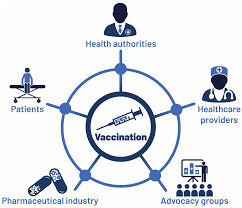Understanding the Impact of Vaccines
Vaccines have revolutionized modern medicine, playing a crucial role in protecting individuals and communities against infectious diseases. From smallpox to polio, vaccines have been instrumental in eradicating or significantly reducing the burden of once-deadly diseases, showcasing the remarkable power of immunization in disease prevention and control.
The Mechanism of Vaccines: Strengthening Immune Defenses
1. Priming the Immune System
- Vaccines work by introducing harmless fragments of pathogens or weakened forms of the disease-causing agents into the body, stimulating the immune system to recognize and mount a defense against specific antigens. This process primes the immune system to respond rapidly and effectively to future encounters with the actual pathogen.
2. Generating Immune Memory
- One of the key benefits of vaccination is the establishment of immune memory, whereby the immune system retains a “memory” of the pathogen’s antigens, enabling a swift and robust response upon subsequent exposure. This immunological memory is essential for providing long-lasting protection against infectious diseases.
Historical Successes: Disease Eradication and Control
1. Smallpox Eradication
- The successful eradication of smallpox, achieved through a global vaccination campaign led by the World Health Organization (WHO), stands as one of the greatest triumphs in public health history. Through coordinated efforts, including mass vaccination campaigns and surveillance measures, smallpox was declared eradicated in 1980, demonstrating the effectiveness of vaccines in eliminating a deadly disease.
2. Polio Elimination Efforts
- Vaccination efforts against polio have led to significant strides in disease control, with the global incidence of polio decreasing by over 99% since the launch of the Global Polio Eradication Initiative (GPEI) in 1988. While challenges remain in reaching every child with the polio vaccine, ongoing efforts aim to achieve global polio eradication in the near future.
Current Challenges and Opportunities
1. Vaccine Hesitancy
- Despite the overwhelming evidence of the safety and efficacy of vaccines, vaccine hesitancy and misinformation continue to pose challenges to public health efforts. Addressing vaccine hesitancy requires tailored communication strategies, community engagement, and collaboration with healthcare providers and trusted sources of information.
2. Equity in Vaccine Access
- Ensuring equitable access to vaccines remains a critical priority in global health, as disparities in vaccine coverage persist between high-income and low-income countries, as well as within communities. Addressing barriers to vaccine access, such as affordability, infrastructure, and distribution challenges, is essential for achieving widespread immunization coverage and disease eradication.
The Continuing Impact of Vaccines
As we navigate the complexities of infectious disease control in the 21st century, vaccines stand as a cornerstone of public health interventions, offering a pathway towards disease eradication and the promotion of global health equity. By harnessing the power of immunization, we can build a healthier and more resilient world for generations to come.




